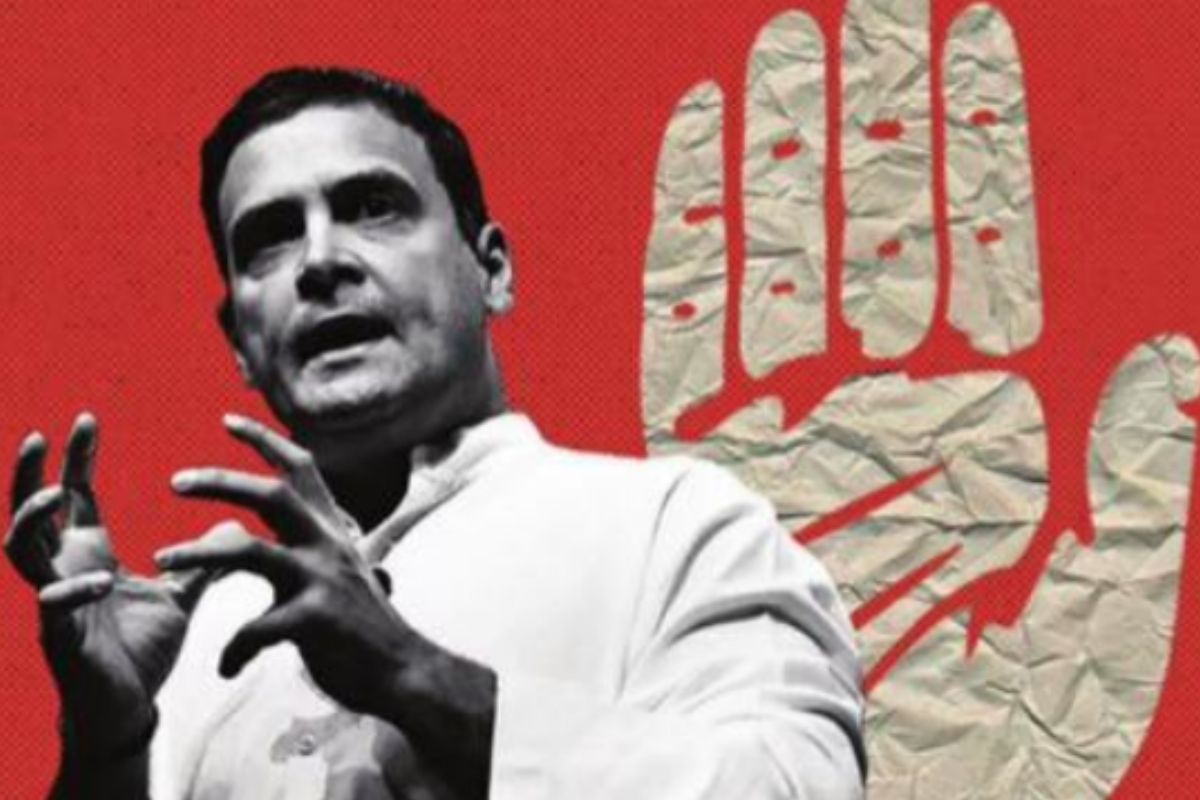USAID row: Congress slams BJP, demands white paper
The grand old party also said that the “white paper” should not only focus on USAID funding, but all such agencies which fund both Governments, individuals and all other entities under Indian law.
As the 137-year-old Congress party is gearing up to elect its non-Gandhi chief, the preceding political drama shows how much the party has weakened in the last two decades.

Photo: SNS
As the 137-year-old Congress party is gearing up to elect its non-Gandhi chief, the preceding political drama shows how much the party has weakened in the last two decades.
While Congress has opened its doors for elections after 22 years, the contest is now between the 80-year-old Gandhi loyalist Mallikarjun Kharge and 66-year-old Shashi Tharoor. Kharge, who had once aspired to become the chief minister of Karnataka, has, at last, a chance to head the party. With the backing of the Gandhis, he should win easily.
Advertisement
The political leadership has always been with the family, and even non-Gandhi presidents have owed allegiance to them. Jawaharlal Nehru, Indira Gandhi, Rajiv Gandhi, Sonia Gandhi and Rahul Gandhi have headed the party for the last 75 years.
Advertisement
The party has had at least 13 presidents outside the Nehru-Gandhi clan. They include J B Kripalani, B. Pattabhi Sitaramayya, Purushottam Das Tandon, U N Dhebar, N Sanjiva Reddy, K Kamaraj, S. Nijalingappa, Jagjivan Ram, Shankar Dayal Sharma, D.K. Barooah, K B Reddy, P V Narasimha Rao and Sitaram Kesri. It was D. K. Barooah who famously said, ‘Indira is India and India is Indira.”
Contests in the Congress party are not new. It was way back in 1950 when Tandon and Kripalani contested, and surprisingly, the former, a Sardar Vallabhbhai Patel loyalist, had won the contest trumping Prime Minister Nehru’s choice.
The last time Congress held an election was in 2000 when the late Jitendra Prasada challenged Sonia Gandhi. As expected, she easily trounced Jitendra Prasada by bagging 7,448 votes against his paltry 94.
The Rahul phenomenon has become an apparent failure, especially when he is not a vote catcher. The Gandhis, therefore, want to rule Congress by remote control. But trouble came from unexpected quarters. It was from the man Sonia Gandhi propped up to take over her position – Rajasthan chief minister Ashok Gehlot. Who would have expected Gehlot, a total loyalist for decades, to lead the rebellion in his party?
Dramatically, about 90 legislators in Rajasthan gave their resignation letters to the Speaker, stunning the party’s high command. Sonia summoned Gehlot, after which the chief minister announced that he was not a candidate for the party chief. Gehlot wanted to be the chief minister and party chief, while the Gandhis insisted on a ‘one man-one post” concept. Then began the search for a dummy president, and Kharge, the party’s leader in Rajya Sabha, fitted the role.
What would be the role of the Gandhis, particularly that of Rahul Gandhi, in the new dispensation? When a reporter asked Sonia Gandhi about this, she said, “Of course, you have to ask the party, I suppose.”
But one can see a clear game plan. Sonia Gandhi would become a Rajmata, and Priyanka would be another power centre. But Rahul will hold the remote and will continue to take all decisions. All these are without any accountability. As senior Congress leader P. Chidambaram has said in an interview, “Congress president or not, Rahul will always have a pre-eminent place in the party.”
He nuanced the statement by explaining that between 1921 and 1948, Mahatma Gandhi was the acknowledged leader of the Congress, and afterwards, Jawaharlal Nehru and Indira Gandhi. “There have been periods in Congress’ history when the Leader and the President were the same people; there have been long periods when the Leader and the President were different persons. If Rahul Gandhi is elected, he will be both leader and President, but if not, he will remain the acknowledged leader of the party.”
Whoever becomes the party president would have an unenviable task – pleasing the high command on the one hand and rejuvenating the dying party on the other. The new President will remain under the family’s radar and cannot move an inch without their okay. Rahul has already said whoever becomes the next party chief should remember, “you represent a set of ideas, a belief system and a vision of India”. He should also be guided by “what we decided at Udaipur, we expect that commitment to be maintained,” meaning the ‘one man, one post ‘ concept.
A non-Gandhi party chief could both be an asset and a liability depending on his functioning. He will come with no baggage. He could become an asset if he remains the glue between the party and the Gandhis, not just a rubber stamp. The new Congress chief should also be a team leader, a vote catcher and one who can unite the party. Moreover, containing internal factionalism and revolts and taking everybody along will not be easy.
The demand that a non-Gandhi should lead the party has been fulfilled but what is clear is that Rahul will continue to have the same powers whether he is elected party chief or not.
Advertisement